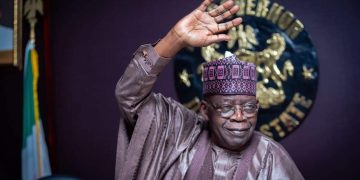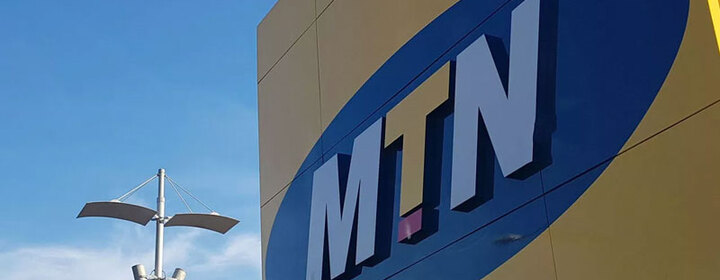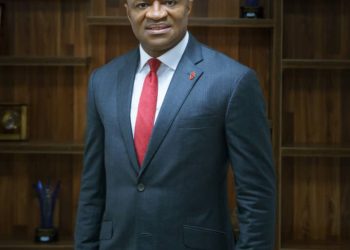MTN has retained its spot as the largest mobile network operator in Africa with a significant presence in Nigeria.
This is according to the company’s “Facts Behind the Sustainability Report,” at the Nigerian Exchange Group House, Lagos, on Thursday.
In the report, MTN declared its commitment to safeguarding our planet by achieving net-zero emissions by 2040, emphasising its readiness to drive digital, financial inclusion and a diverse society.
According to the Chief Corporate Services and Sustainability Officer (CCSSO), MTN Nigeria Plc, Mr. Tobe Okigbo, the firm remains focused on connecting millions of customers, enabling seamless communication, delivering robust internet connectivity, and offering digital solutions that power businesses and improve lives across varying customer needs and preferences.
Reiterating the brand’s readiness to tackle issues affecting the average Nigerian, Okigbo annoucned that MTN Nigeria is working on a partnership with NIMET to ensure every phone owner is able to get a real time weather report.
“We are committed partners and stakeholders to creating and protecting value.
We are committed to boosting inclusive economic growth on the continent.
Across the nation, from metropolises to remote villages, we are expanding our extensive footprint, staying true to our commitment to bridging the digital divide. Through innovative solutions and robust network infrastructure, we are driving inclusive connectivity nationwide.
This will be so precise that you can actually tell a farmer the particular day he should be planting tomatoes,” he said.
Sharing the inside story on MTN’s journey to reduced emission and smarter network, Tobe revealed that the telecom’s 2024 ESG performance highlights included 194 solar-powered rural telephony sites, 1,004,650.5 total energy consumption (GJ), 93.0 per cent network coverage, and 90.1 per cent broadband penetration.
Highlighting its plans for gender equality, he broke down strides made by the network company to guarantee gender inclusion in the workplace, which included 41.4 per cent female representation, 216 new hires made up of 139 females and 77 males. On top of that, 87.7 per cent of its workforce are below 50 years, while 41 employees are those living with disabilities (PWD), representing 2.2 per cent of its workforce.
Okigbo concluded by saying that its sustainability strategy is mainly based on a deep understanding of the material matters that shape the expectations of stakeholders.
“We utilise a rigorous materiality assessment process to identify, prioritise, and address the critical ESG issues affecting our business.
Our approach considers actual and potential economic, environmental, and social impact, and evaluates them based on their significance, severity, likelihood, scale, reach, and probability of occurrence.
Our material topics adhere to sector-specific GRI Standards and International Financial Reporting Standards (IFRS) S1 and S2 sustainability disclosure requirements. This ensures consistency with global reporting expectations, while enhancing transparency and accountability. Our highest governance body reviews and approves the final material topics, guaranteeing credibility and meaningful integration of stakeholder perspectives.
Our materiality matrix provides a clear visual representation of the prioritised issues that shape our sustainability strategy, guiding our efforts to create long-term value for our stakeholders,” he added.

Folami David is a dynamic journalist who views the world through an analytical lens, translating complex narratives across multiple industries into compelling stories. With an insatiable appetite for information and a keen eye for emerging trends, Folami specializes in uncovering the interconnections between technology, business, culture, and society.


















